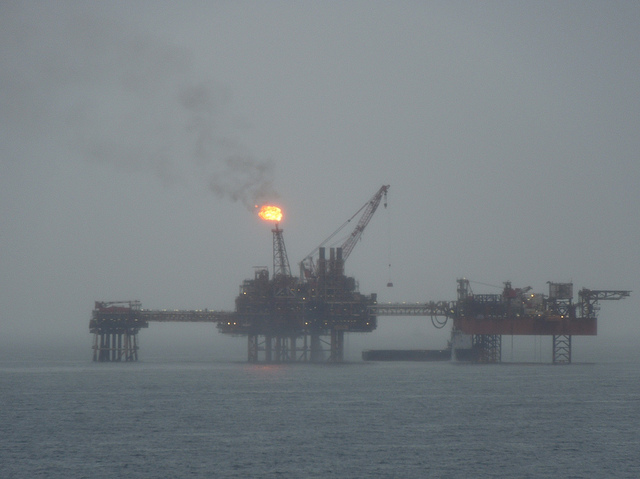
It looks like the party is over for climate change deniers.They had a good run through the 1990s and early 2000s, gaining a lot of traction as they attempted to undermine the science on climate change, but the public is getting too savvy and the reality too severe. Climate change can no longer be dismissed as an enigmatic environmentalist ploy that may or may not play out in the future. Climate change is happening now, to us, where we live. And you just can’t deny that anymore.
Climate change denial has consequences. Inside Climate News recently reported that Exxon Mobil’s own scientists had confirmed the role fossil fuels played in climate change decades ago, and yet the company reportedly perpetuated misinformation to the public. This has gotten Exxon into a heap of trouble, as the company is now being investigated by the New York state attorney general for potentially misleading the public and its own investors.
The PBS Frontline short documentary has the highlights:
So what did Exxon know about climate change?
According to a recent editorial in The New York Times:
Government and academic scientists alerted policy makers to the potential threat of human-driven climate change in the 1960s and ’70s, but at that time climate change was still a prediction. By the late 1980s it had become an observed fact.
But Exxon was sending a different message, even though its own evidence contradicted its public claim that the science was highly uncertain and no one really knew whether the climate was changing or, if it was changing, what was causing it.
Promoting claims of uncertainty about the science turned out to be an incredibly effective misinformation campaign. Just look at the confusion in the U.S. about climate change now. And even though Exxon has completely changed its messaging on climate change, there are still relics of the old message manifest in science standards, textbooks, and challenges to teachers when they try to teach the topic.
Could Exxon executives have known what the impact of their work would be? In particular, could they have realized that their actions would result in teachers being harassed for trying to talk about climate change? Could they have predicted that they would be harming the science educations of their future consumers and their future employees, and of their own children and grandchildren, for decades to come?
We don't know what Exxon’s executives contemplated when they made their decision to dismiss what their own scientists knew about climate change. But we can be sure that actions that further science denial have unwanted consequences in science education.
Photo by Psycho Delia via Flickr

